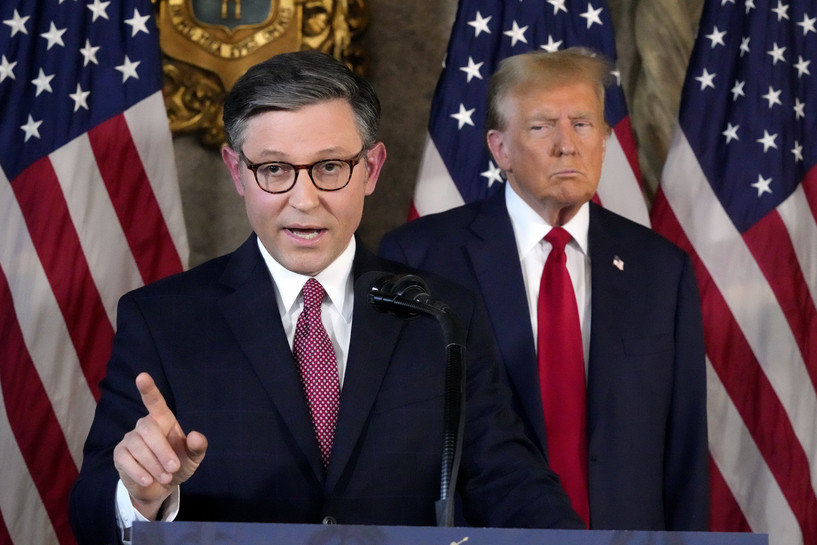As former President Donald Trump prepares for his first visit to Capitol Hill since leaving office, his public agenda may focus on a forward-looking 2025 legislative plan, but privately, he is fixated on harnessing the powers of Congress to fight on his behalf and target the Democrats he accuses of “weaponizing” the justice system against him.
In the days following his May 31 conviction on 34 felony counts in New York, Trump orchestrated a campaign for legislative revenge, starting with a phone call to Speaker Mike Johnson. According to those familiar with the conversation, an angry Trump, frequently using expletives, insisted, “We have to overturn this.”

Johnson, a former attorney who had been among the first Republican lawmakers to stand alongside Trump at the Manhattan trial, sympathized with the former president’s frustration. The speaker, who had already been vocal about Manhattan District Attorney Alvin Bragg’s case and the alleged broader abuse of the justice system, believed the House had a role to play in addressing Trump’s predicament.
However, with a slim majority and cautious swing-district members, Johnson is finding it challenging to deliver on Trump’s demands. Efforts to impeach President Joe Biden have been all but abandoned, and a contempt vote against Attorney General Merrick Garland narrowly passed only after intense whipping. Proposals targeting “rogue prosecutors” investigating Trump also appear to have an uncertain future.
House GOP leaders are now focusing on a bill written by Rep. Russell Fry (R-S.C.) that would allow presidents charged at the state level to move those cases to federal court, effectively nullifying the power of prosecutors like Bragg and Fani Willis in Fulton County, Georgia. Johnson has also been discussing with Judiciary Committee chair and Trump ally Jim Jordan (R-Ohio) the possibility of using the appropriations process to target special counsel Jack Smith’s probe.

Despite these efforts, the proposals currently lack the necessary votes to pass. Some senior Republicans, such as Rep. Mike Simpson (R-Idaho) and another skeptical appropriator, have expressed doubts about the wisdom of defunding Smith or interfering with prosecutors’ work without evidence of bad faith or fraud.
As Trump heads to Capitol Hill for meetings with House Republicans and GOP senators, the official agenda focuses on uniting the party ahead of a contentious election season and discussing a potential 2025 legislative agenda. However, whether Trump will use these opportunities to push for his legal priorities remains to be seen.
The former president is expected to express his desire to protect seniors by opposing cuts to Social Security and Medicare, reiterate his intention to crack down on the border, lay out a broad vision for economic policy, and preview a U-turn on Biden’s foreign policy priorities.
As the battle between Trump and the justice system continues, Speaker Johnson and House Republicans find themselves navigating a delicate balance between supporting their party leader and maintaining the integrity of the legal process, all while facing internal divisions and the challenges of a narrow majority.
Credit: Politico



